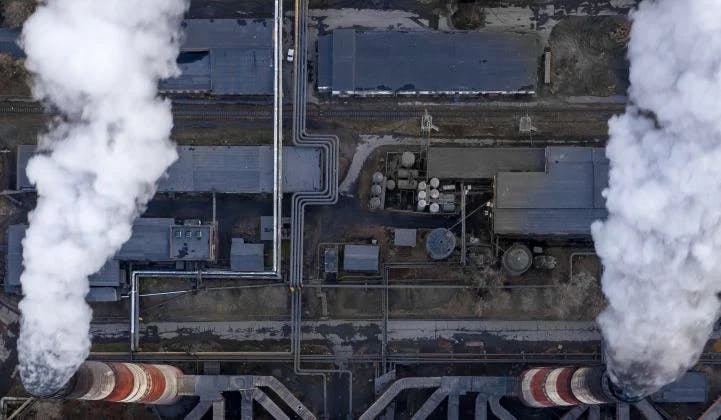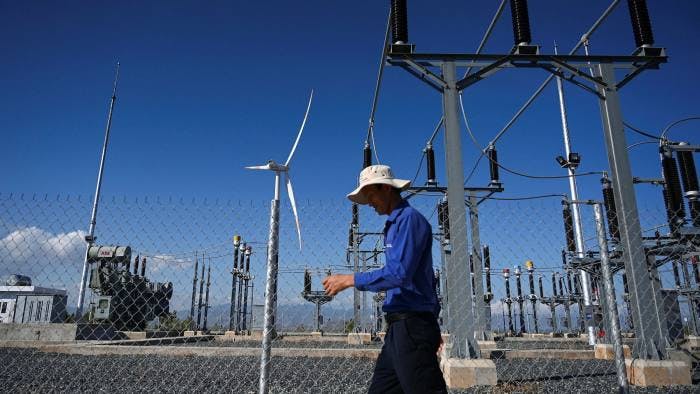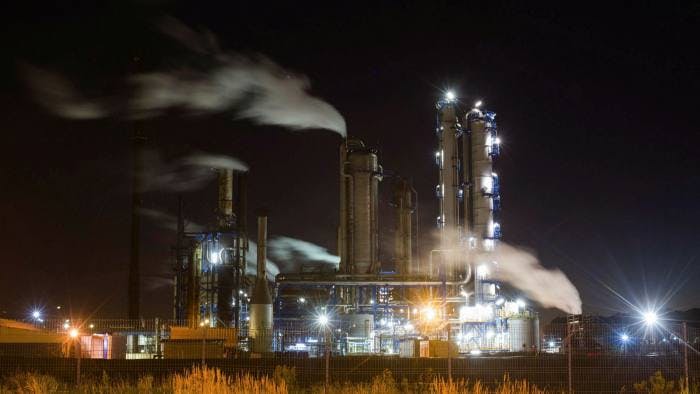 Grist
Grist
Engine 1’s Exxon Insurgency Suggests The Bottom Line Is The Key To A Big Oil Revolution
Long-suffering environmental activists cheered last month when an organized investor revolt forced ExxonMobil to add three climate-conscious directors to its corporate board. Despite nearly a generation of shareholder activism, nothing like it had ever happened. It seemed like a historic comeuppance for the petroleum powerhouse.
But those who pay close attention to the tension between fossil fuel companies and their investors offer a more nuanced take. Don’t expect the Exxon oil tanker to turn around overnight, they say. Instead, consider the move the beginning of a cultural shift, one of those fuzzy, hard-to-recognize but essential-in-retrospect moments when everything starts to change. In coming years, similar tactics could be leveraged against other stubborn, carbon-loving corporations.
Read more Bloomberg
Bloomberg
Half Of China-backed Overseas Coal Projects Shelved
Over half of the Chinese-backed overseas coal-fired power plant projects have been shelved or canceled over the past six years, underscoring the rising forces against coal investments globally.
Of the 52 projects with Chinese financing announced between mid-2014 and the end of last year, 25 have been shelved and eight have been canceled, according to a research paper published Wednesday by Beijing-based think tank International Institute of Green Finance. Only one project -- a power station located in Kalapara, Bangladesh -- has gone into operation, a sign that financing costs and risks related to coal projects have surged, while clean energy like solar power have became cheaper to produce, the paper said.
Read more Financial Times
Financial Times
FTSE Russell Threatens To Expel 208 ESG Offenders From FTSE4Good
More than 200 companies are in danger of being thrown out of a family of FTSE Russell stock indices for failing to meet more stringent environmental standards.
The 208 companies represent 13.5 per cent of the 1,546 stocks in the FTSE 4Good index series — designed to measure the performance of businesses with strong environmental, social and governance (ESG) practices — which is tracked by a range of exchange traded funds and investors such as the Japanese Government Pension Investment Fund, the world’s largest pension fund.
FTSE Russell has given the companies 12 months to meet its tighter climate-performance standards or face deletion from the indices.
Read more Financial Times
Financial Times
ETF Providers Have Been Leading Buyers Of New Fossil Fuel Bonds, Finds Study
New bonds sold by fossil fuel companies were being snapped up by leading exchange traded fund providers including BlackRock and State Street even as these managers were preparing to pledge to slash their carbon emissions exposure, researchers have found.
About 14 percent of the value of new bonds bought by 35 of the largest US corporate bond ETFs between 2015 and 2020 were issued by carbon-intensive companies in the oil and gas, utilities and coal mining sectors were , according to a new analysis by the Oxford Sustainable Finance Programme at the University of Oxford’s Smith School of Enterprise and the Environment.
Read more The Guardian
The Guardian
A US Oil Company Cut Nearly 2,000 Jobs – And Reaped $2.1bn In Pandemic Benefits
One morning in September, word of layoffs began to spread quickly through Marathon Petroleum’s refinery in the small industrial community of Garyville, Louisiana.
Seven months into the pandemic, workers at the oil refining plant thought they would be spared the fate of their colleagues at other facilities, who had already been jettisoned into a daunting job market. “Through the morning, we were seeing people get the phone call and not come back,” said one maintenance engineer, who lost his job after nearly a decade at the facility. “Everybody was on pins and needles waiting for the call.”
Read more